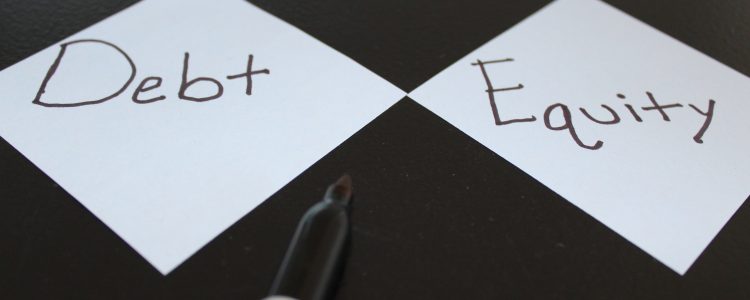
Category: Uncategorized


Jul 20, 2017
0 
Three Keys to Successful Investing
Want to be successful in your investing? Focus on these 3 keys... There are a lot of factors that we look at when digging into investments. Yet, we often get distracted from some of the most important elements. Here are three critical keys to truly profiting from investments, and creating sustainable results that will last. Minimize Fees In his recent book ‘Money – Mastering the Game’, Tony Robbins reveals that one of the biggest threats to our financial futures and profitable investments are fees. In the world of real estate, individuals could face a barrage of multiple layers of fees with mortgages, brokerage, and banking: Many of which don't make sense or are confusing. This can be what depletes potential double digit gross returns, down to what may actually be negative yields once you count inflation. It is important to differentiate junk fees from legitimate fees in your investments and obtain quality, professional advice. You usually get what you pay for. However, by investing smarter we can strip away many of these layers, and get good returns, with good management. Minimize Taxes Smart investors prioritize taxes when investing. They take them head on, instead of just burying their heads in the sand. Taxes can take a 30-40% chunk right off the top of your returns. That dramatically changes what you thought you were going to get from an investment. Fortunately, there are some investments which offer tax breaks, and vehicles for investing which the IRS has established to allow investors to enjoy tax deferred or tax-free investments. Use these and you will not only stay in the black when others fall into the red, but you can generate out-sized returns, and build wealth and income much faster. Imagine being able to invest 40% more each year? Diversify No matter how carefully you select investments things can happen. Markets can change, corrections can happen or even natural disasters can come along. If you have all your money in one type of investment, or one asset, you are facing risks every day. Even within the same sector or asset class, you want to hold multiple units. When you are in multiple locations you’ll most always be able to generate income and have a cushion, no matter what happens externally. SummaryWe can use all types of fancy calculations and weigh all kinds of metrics when evaluating investments. If you are not watching the fees, watching the taxes, and fail to stay diversified, you could find your profits not being so profitable!A lot of getting the best ROI comes down to smart due diligence, intensive research and knowing ALL the numbers.

Jul 14, 2017
2 
20 Habits of the Smart Investor
What good habits will you find common among the most successful real estate investors? Goal Setting Setting goals is critical to get where you want to go. Everyone you know who has achieved great things has set clear goals. Think about applying SMART goals: Specific, Measurable, Achievable, Relevant and Time bound. Ongoing Education Going deep into debt for a college degree is only part of your education. Much of what you learn is self-taught by life experience. Being a lifelong learner is a sign of true intelligence. Focus on Your Process Having goals and a good investment strategy is the start. The real success comes in focusing on the right process and improving on it. Process and protocol can simplify how you operate and give you a clear roadmap that you can gather data with. Compete with Yourself Real leaders focus on getting better and improving themselves and their results year over year. Don’t spend all your time worrying about competition, compete with yourself. Eliminate Time Wasters Identify the time drains in your day and put a plan in place to remove them. Look at how often you answer your email, look at social media, take unnecessary phone calls and shuffle paper. This applies to both people and activities which are a waste of your time. Adapt If one thing is for sure, it is that things are constantly changing. Those best at adapting have the best chance to stay ahead. Remember the only constant in life is change. Be Persistent Persistence is the difference between the successful and the rest of society. Remember the story of Thomas Edison? “I have not failed. I've just found 10,000 ways that won't work.” Focus on the Positive You manifest what you think about. Stay positive and get positive results. This is a daily choice. You can’t control everything that happens, only how you look at it and react. Good Health Habits Good health habits help your mind work optimally and gives you the ability to stay positive. This increases your energy levels and stamina. You don’t have to become a bodybuilder, just practice healthy habits daily. Morning Rituals Smart investors have good morning rituals. They might include stretching, a cold shower, a meditation or quiet time or simply breakfast! These help them focus on their goals, stay positive, and stay healthy. Planning Ahead for the Day Create your own schedule, or you’ll always have your life and results controlled by others. Elite entrepreneurs like Elon Musk schedule their time down to segments of just a few minutes. Visualize Success Setting goals aren't enough. The real change happens when you apply visualization. This engages emotion and positive thinking and puts your goals into action. Practice Thankfulness Intentionally contemplating thankfulness daily makes a big difference in our mindset. Operating from a mindset of gratitude will change your outlook, reactions, and can really help when it comes to building relationships. Get Enough Sleep Sleep is underrated. It affects our metabolism, how we feel, and our ability to think well. Getting enough sleep is actually more critical than the amount of time you put into your waking hours. Nurture Positive Relationships Who you hang out with matters, a lot. Make sure you are spending time with positive people who will lift you up. Work on building real relationships and connections. Generate Multiple Streams of Income No matter how smart you are markets and individual investments can take some wild turns. If all your eggs are in one basket that can be a problem if the market corrects. If you have multiple streams of income you are setting yourself up for a better outcome. Work Smarter Work efficiently, and know when you are at your peak effectiveness. The question of putting in 12 hour days when your peak ends at 8 hours is something you need to gauge. Learn how to make the most of those 8 hours instead. That’s when you’ll get the best ROI on your time. Master Self-Reliance If you want good things to happen, it’s on you. It comes down to you to solve problems and take action. Take ownership of this fact, and look for ways to be self-sustaining to cover yourself financially. Make Time to Play Along with sleep, and hustling hard during your active hours, taking the time to play and actively de-stress is critical. Why work so hard on everything else on this list if you aren’t going to take the time to enjoy the journey too? Give The pinnacle of success isn’t really just amassing a fortune and hitting ‘your number’. The most successful go on to give big, pay it forward, donate, and volunteer. You don’t have to wait either. Make this a part of your process now. You may not be able to implement all of these at once. Take one at a time and focus on mastery and then move to the next. Each goal that is achieved and reward reaped gives you the motivation to push forward toward success in not just real estate investing but in your everyday life!

Jul 6, 2017
1 
What Type Of Homes Should Beginner Investors Look For?
Which type of property is right for your first investment?One of the most common questions new investors ask is, “What types of homes should I look for as a beginning investor?” So, what’s the answer?What You Need to KnowThe first step to deciding on which type of homes you should be looking for is to know what you really want out of it.What are your financial goals? What real estate strategies are you planning to use? What resources do you have? What talents do you have? What types of properties do you understand?What’s Important as a New InvestorAs a new investor, the important factors you should probably be focusing on include:Affordability Simplicity Exit strategies Ease of property management Low maintenance costsBeginner investors should be looking to test the waters, and keep their risk low in their first investments. Err, on the side of this being a springboard investment to launch you forward as you learn and get results. The last thing you want is to bite off more than you can handle, and get stuck.The ‘Bread & Butter’ HouseFor all of the reasons above, most investors trend towards the common ‘bread and butter’ house. That is your standard 3 bedroom, 2 bath, single family home. It’s what will typically be the easiest to finance, rent and resell, and where most of your money will come from. This is the standard, neighborhood home which appeals to the most people. There are exceptions, however. If you are in an area where there are mostly 2 bedroom, 1 bath homes, or almost all condos, then those may be your best choice vs. the 3 bed 2 bath home. It all comes down to what banks will be most comfortable financing, and which properties will fit the largest number of renters and end buyers.Your first property is about maintaining flexibility and keeping risk low. It is about going for the homes that are going to deliver real, consistent results. You may aspire to live in a mansion next to LeBron James’ home, but that doesn’t necessarily mean it is a profitable investment. Leave the quirky homes and ultra-high-end speculation to others. Then you’ll be the one with the best investments making the most consistent cash flow at the end of the day.SummaryBeginner investors should start by getting clarity on what they have, and what they want. They should be ready to take bold action and get going. Yet, to start smart, with properties that are going to give them the lowest risk, most options, and best flexibility. Once you get a few under your belt you can always expand to taking on more adventurous projects.

Jun 27, 2017
0 
5 Types Of Insurance Coverage Rental Property Owners Need
What type of insurance coverage do you need for your rental properties?Rental property owners need insurance coverage. You may not love making premium payments, but you’ll be glad you’ve got it when something happens. If you plan to finance real estate investments you’ll often also find that insurance is mandatory.Here are five types of insurance coverage you need to know about…1. Title InsuranceTitle insurance covers your rights to ownership and use of the property and helps cover legal defense if issues arise. You do not want to buy property without this. Every dollar of your investment and future income can be on the line. There is a lot of fraud out there today, and without title insurance, you are at risk.2. Hazard InsuranceThis is your basic property insurance. It typically covers fires and other common forms of damage. This is usually based upon the amount of the loan you have on a property, or the cost to rebuild the property. Make sure you keep the amount of coverage updated as your property value increases.3. Special Disaster InsurancesBasic hazard insurance is very limited coverage. It typically does not cover a wide variety of other natural disasters which can destroy your property. If you are in a flood zone you will typically need special flood insurance. This is normally very inexpensive. Those in coastal zones may need windstorm or hurricane insurance which also can be very expensive.4. Renters InsuranceHazard insurance doesn’t cover tenant belongings. You don’t want to be on the hook for your tenants’ furniture and personal items if there is a fire, flood, or break-in. Typically, landlords will require that renters obtain their own renter’s insurance, at their own expense. This should be laid out in your lease.5. Umbrella Policy Insurance CoverageThere is generally a discount when you group all of the properties together and this also provides ease of management. If you do enough deals, and own properties long enough you’ll run into something. Often loopholes in the above policies will mean you aren’t covered by them, or they may not provide enough coverage. An umbrella insurance policy can be used to cover you and act as a second layer of protection across all of your real estate business and assets. This can help cover issues like “dog bite” lawsuits.Keeping in mind the need for all types of insurance coverage and this will make your property management experience a smoother and less risky endeavor.

Jun 23, 2017
0 
Real Estate Success: 10 Professionals You Need In Your Camp
Who are the essential professionals you need in your camp before you start investing in real estate? It is important to keep up your momentum when getting started in real estate investing. Yet, you also want to make sure you are investing wisely and can enjoy a smooth process which delivers the best possible real estate success.Here are the first five professionals you need to connect with before you invest: CPA Your actual investment returns will depend a lot on taxes. There can easily be a double digit difference in what you get to keep, depending on how you set yourself up, and how you file taxes. A good tax professional can help you strategize and get it right before you wind up with a big income tax bill. Attorney Sooner or later you will want or need an attorney. It is just smart to have one already pre-screened and on call for when that time comes. You may want a specialist real estate attorney who can help negotiate contracts, and aid you in defending against lawsuits. It might also be helpful to have a family law or asset protection lawyer who can help you personally set up the right structures to grow and pass on your legacy. Insurance Agent Part of real estate success is the reduction of risk. Even if you don’t need direct property insurance to cover individual real estate assets, you will probably need an umbrella policy, life insurance, and other types of insurance to cover your assets in various areas. Capital Partners Even if you don’t plan on needing credit or extra cash to invest, it can be wise to have relationships with these sources in advance. It will help you avoid any cash crunches or missing out on any great opportunities. This may be private lenders, mortgage brokers, or angel investors. You will also want to build relationships with bankers to make your transactions go more smoothly. Experienced Mentor Having someone you can pick up the phone and call or shoot an email to for urgent help or an experienced second opinion can make all the difference in your business decision making. Find someone who is experienced in what you are doing and who shares your values. If you plan to be an active real estate investor, make this a full-time thing, or to start a real estate business, you will also want these five people in your camp before you get going. Contractor Having a trusted contractor on call can be invaluable for fast property inspections, repair estimates, timely turnovers and getting work done quickly. Real Estate Agent Whether or not you actually use a Realtor to help buy, sell, and rent real estate, investors can find them very useful for making sense of the market, and keeping on top of evolving trends. Marketing Expert You simply can’t do it all as an investor. Even if you have a strong marketing background, the most profitable use of your time is probably inking new deals. Still, with 90% of your success relying on your marketing to secure deals, fill them with renters, and resell them, make sure you have an expert on your team. Virtual Assistant An assistant can be used to protect and free up your time so that you are getting the best ROI on every hour of the day. A good assistant can handle a wide variety of time-consuming tasks, including finding the other people on this list. Project Manager As you grow your real estate business, taking on a big multifamily property, or are building new homes to rent out, a project manager can save you time, and help things go smoothly. This could be a true project manager for a specific mission, a property manager, or a general manager for your organization. Putting some thought into what and who you need to have in your camp to be savvy and efficient will help direct you towards the path of success!

Jun 14, 2017
0 
Ways To Network to Find Private Capital for Real Estate Investing
How and where can real estate investors network to find private capital?Private capital continues to be a crucial part of real estate and investing today. Private money can be far more desirable than conventional bank financing in many ways, and sometimes easier to obtain if you can make the right connections. So, where can you meet and network with potential private investors?Social EventsNetworking with those that have the capital to invest, doesn’t have to be limited to stuffy organized networking arenas. It’s really about getting out and putting yourself in the right place, at the right time. So, where might these individuals hang out near you? The golf club? Charity fundraisers? Antique and luxury car shows? Get out there, mingle, and have fun at the same time.MeetupsMeetup.com has become an incredible hub for connecting with targeted groups of people. You can attend local meetups on just about any subject. Or host your own, and cultivate a group of private investors yourself.Local Real Estate Investor Association (REIA)Local real estate investment associations and clubs are an easy way to get right to meeting active investors. No matter where you are in the country you are bound to have a few of these types of networking gatherings each month. You can also expand to Realtor, mortgage broker, and Chamber of Commerce networking nights.Live Industry EventsLive events can put you right in the middle of hundreds or thousands of potential private money lenders. Your city or region probably has regular mortgage and real estate industry tradeshows and home related expos. Then there are investor pitch nights and seminars. Or check out national events which focus on bringing together financiers, private investors, and entrepreneurs like the Midwest Multifamily Conference. Investors from across the nation will be in attendance at that event.Online GroupsJoining groups online can connect you with active investors across the country too. This might include BiggerPockets, Angel List, and the Angel Capital Association. Or you can hone in right to platforms where investors are taking action, and invest alongside them, like you’ll find at Holdfolio.SummaryPrivate capital is very valuable and needed today to fund deals. It is also plentiful. Fortunately, it doesn’t have to be that difficult to connect with investors and potential capital partners. No matter where you are, and whether you like meeting people in person, online, at professional networking events, or more casual affairs, you have a whole menu of choices. Always remember, it is wise to make sure and not lose your money partners capital or it will be difficult to obtain it a second time around. If you make people money they will invest and reinvest.

Jun 1, 2017
0 
Investing With Equity Versus Debt
Which is better; investing in real estate with debt or equity?Is it better to invest in properties with all cash, to use as much mortgage financing as you can, or to loan your money to investors with a debt investment? This is frequently a hotly debated question. On one side, you have the Dave Ramsey fans who shun virtually any type of lending or borrowing. Then you have the polar opposite real estate gurus recommending extreme leverage, and never using a dollar of your own. So, which strategy is best? How do they stack up against each other?Take a look at some of the pros and cons of equity vs. debt investing, and you decide…The Pros & Cons of Debt InvestingInvesting with debt can either mean using debt and borrowing to fund investments. Or it can mean using your capital to make loans and provide debt financing to others.Loaning your money for a return is a popular strategy with banks and venture capital firms, as well as affluent private lenders. On the upside, it can mean less management and overhead. You don’t own the property, so you normally don’t expect to pay taxes or insurance, or have to worry about repairs or tenants. That is unless the borrower stops paying. The downside is that you are only getting a percentage of the cash flow and return potential, and usually don’t get any share in rising equity.Others don’t have a ton of cash, and may be considering borrowing money to fund investments with debt. This can be through mortgages, lines of credit, loans from retirement accounts, or pooling together money from friends and family. There are great advantages in this, including lowering your risk in any one investment, while being able to diversify and grow your investments fast. It can also bring extra risk from lender fraud, and ending up underwater if property values take a temporary nose dive. While many would prefer not to borrow, it can seem like a necessity for many who need a way to get ahead, and who just can’t save fast enough.The Pros & Cons of Equity InvestingEquity investing can have its advantages and disadvantages too. First and foremost, it has traditionally meant limiting the ability to invest and diversify. Most people can’t save $180,000 a year to buy an average home all cash to turn into a rental. Putting your entire nest egg into just one property can be risky. One major hurricane or earthquake, and you could have a nightmare situation on your hands.On the bright side, equity investing is often seen as less risky because you don’t owe the bank anything. You don’t have to worry about monthly mortgage payments, or banks faking foreclosure documents, or fraud like force placed insurance. You’ll also have more flexibility and liquidity if you ever need to sell.Plus, equity investors can enjoy superior net returns as they avoid all those bank and borrowing fees, extra closing costs, and interest.SummaryAs we can see; there are benefits of both types of investing. However, there are also hybrid options. For example; you could team up with your friends and family to invest equity into an opportunity. It’s not all your cash, but you don’t have to worry about a bank loan. Or you could partner up with peers like you and invest a small amount of cash into a small pool of rental properties. This again gives you equity advantages, but retaining the ability to break through the traditional limits and risks of going it all alone.How will you invest?

May 31, 2017
0 

Aug 9, 2017
0